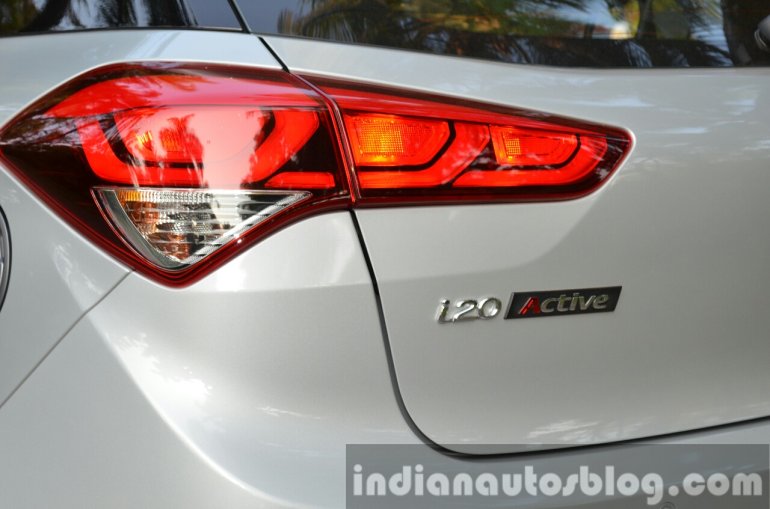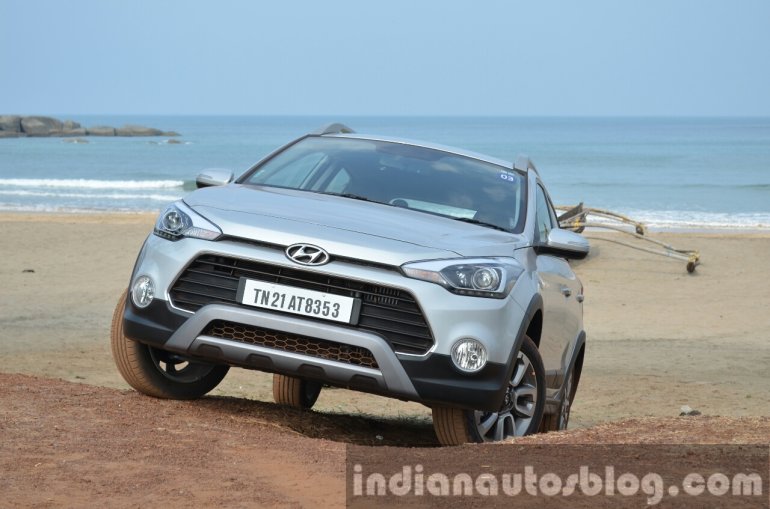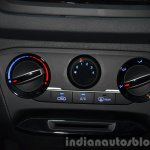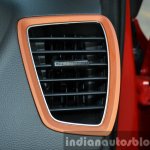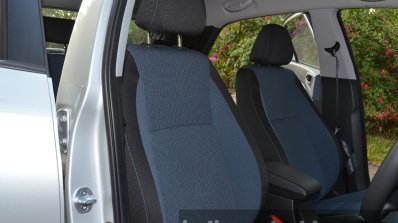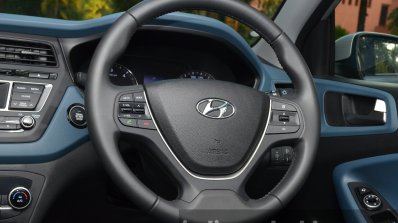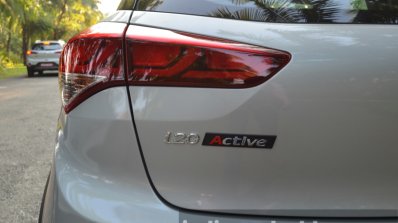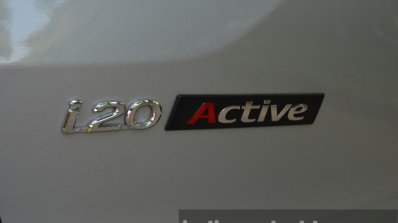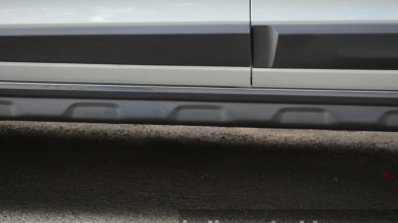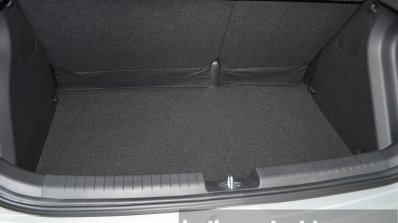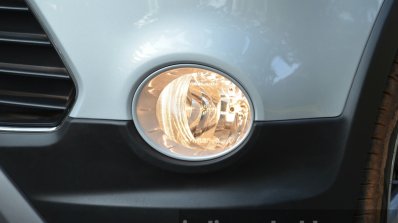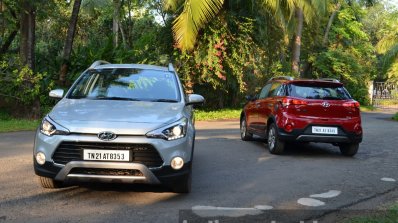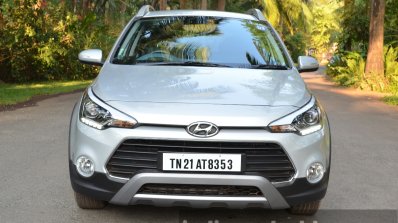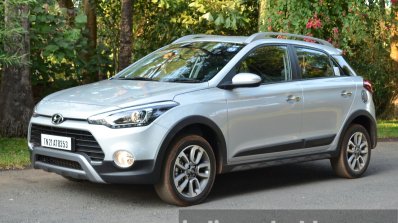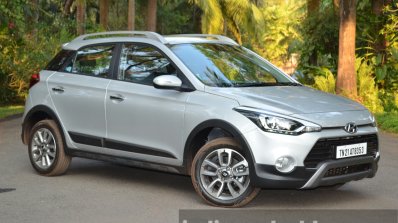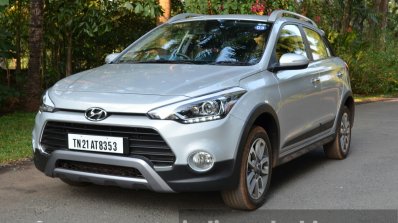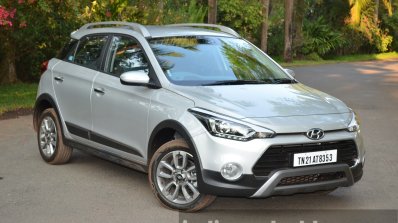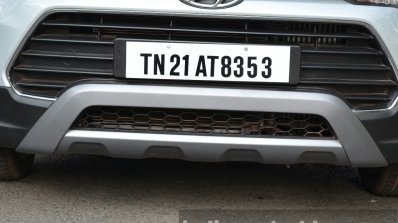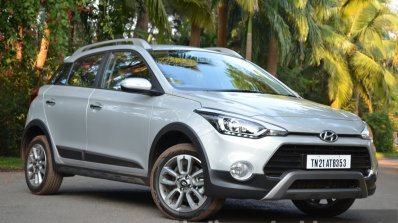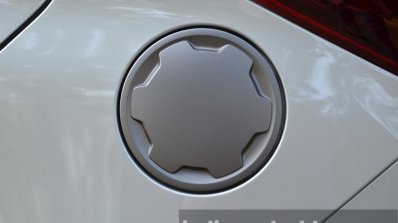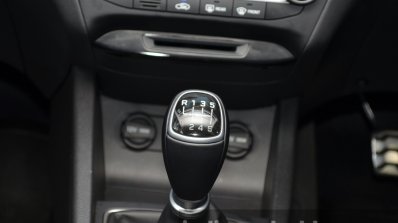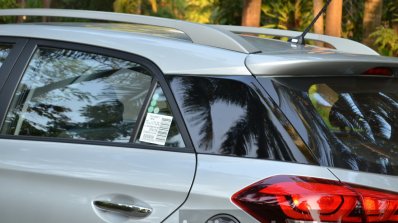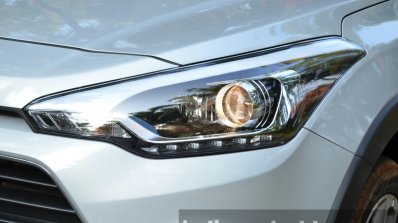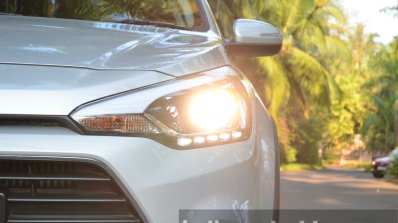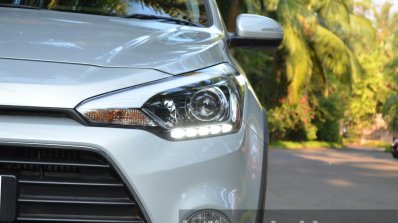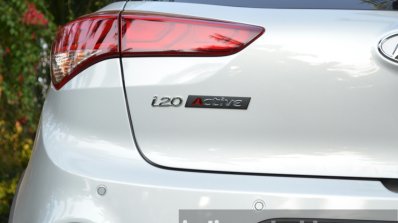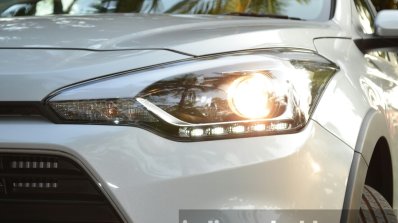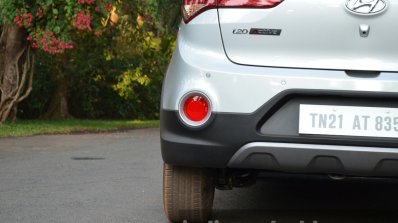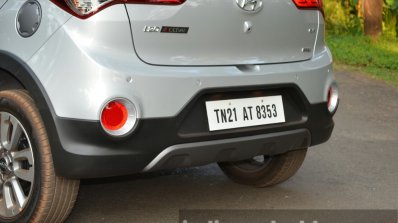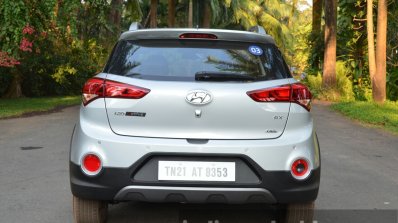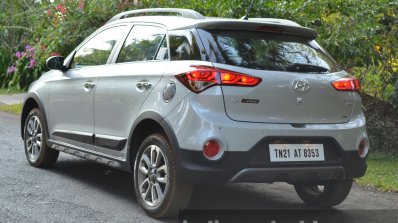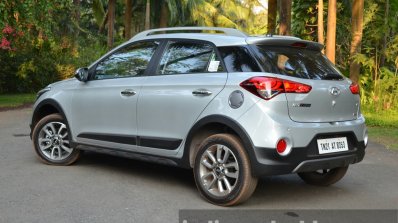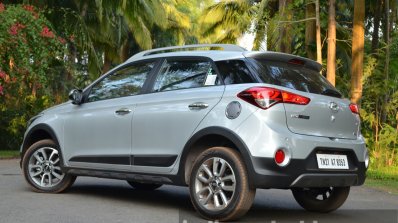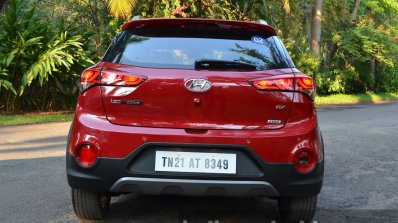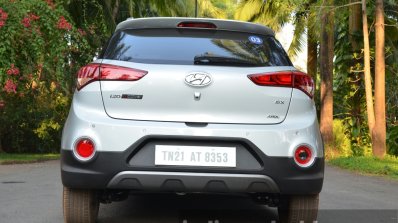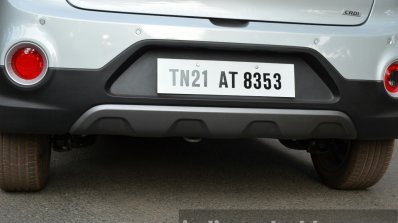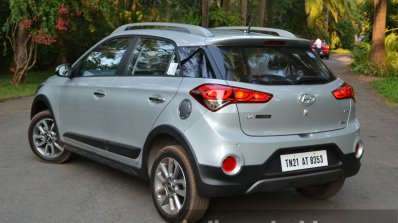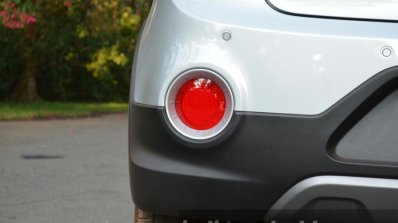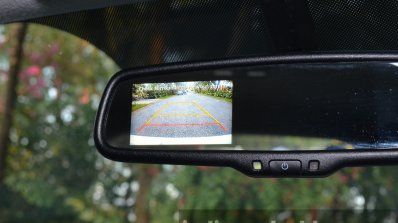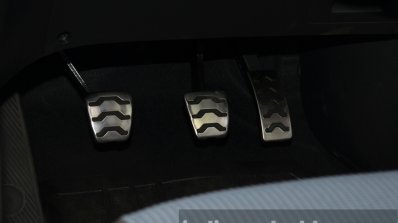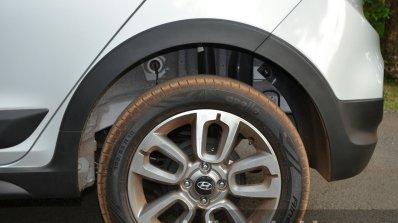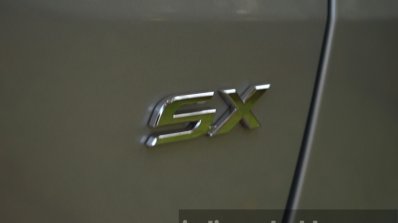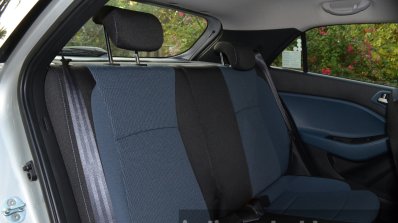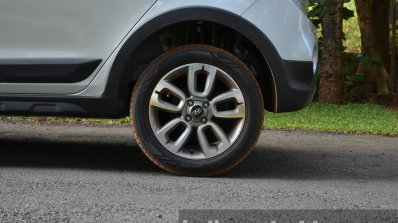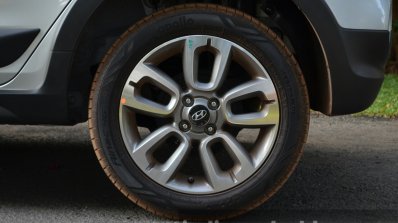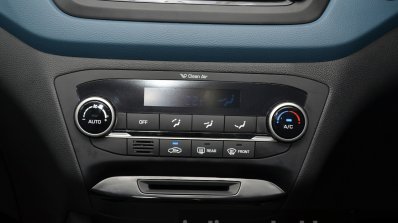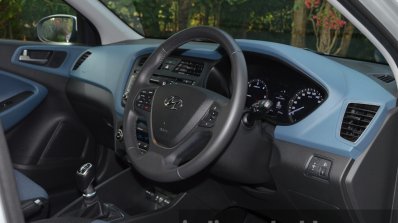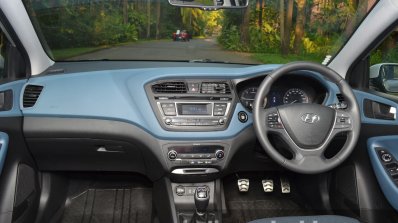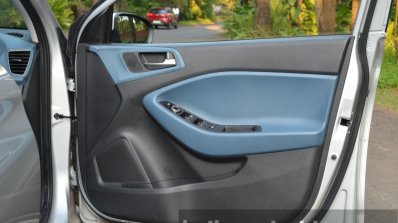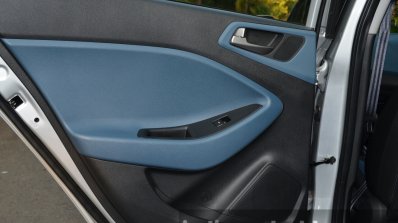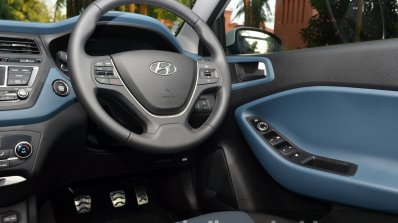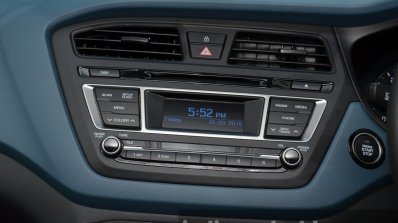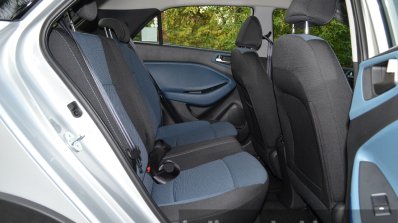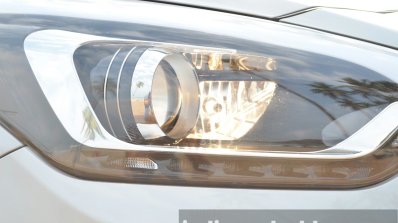Hyundai i20 Active - First Drive Review
Hyundai will launch the Elite i20 based pseudo-crossover, the Hyundai i20 Active on March 17, 2015. Here's what it is like to drive -
Exterior:
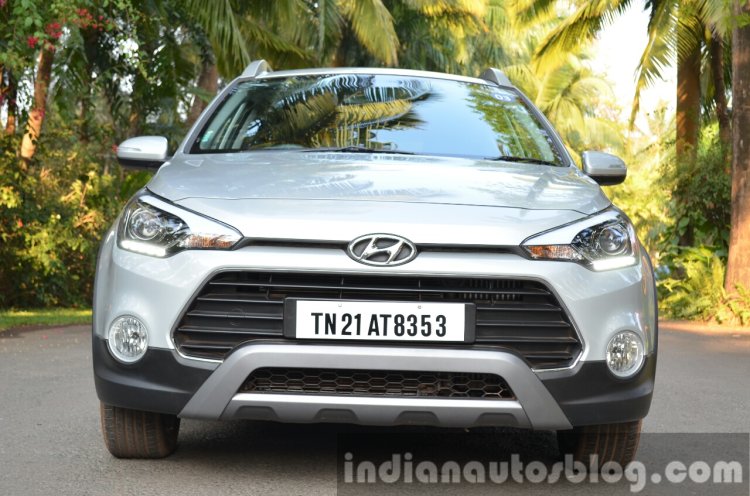
The front fascia of the i20 Active gets new headlight clusters with LED daytime running lights, projector headlights and cornering lights. The bumper is all new and features a new grille, and circular foglight enclosures with a skid guard.
Moving to the side, new 16-inch alloy wheels, body cladding, roof rails, a new fuel cap and a gloss finish for the C-Pillars (the Elite i20 features a Matt finish) are the changes designers have endowed the car with. The ground clearance has also increased by 20 mm to 190 mm.
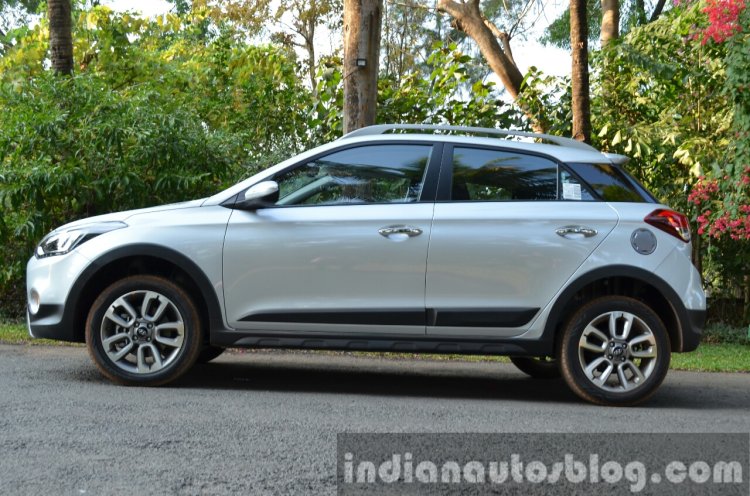
Finally, at the rear, a new bumper with circular reflectors, a skidplate and an ‘Active’ badge complete the round of exterior changes to the i20 Active. It should also be noted that Hyundai will not name the i20 Active following the usual Sportz, Asta etc., but will instead use ‘Base’ and ‘SX’ names like in the Xcent and Verna.
The i20 Active measures 3,995 mm in length, 1,760 mm in width and 1,555 mm in height (with roof rails).
Interior:
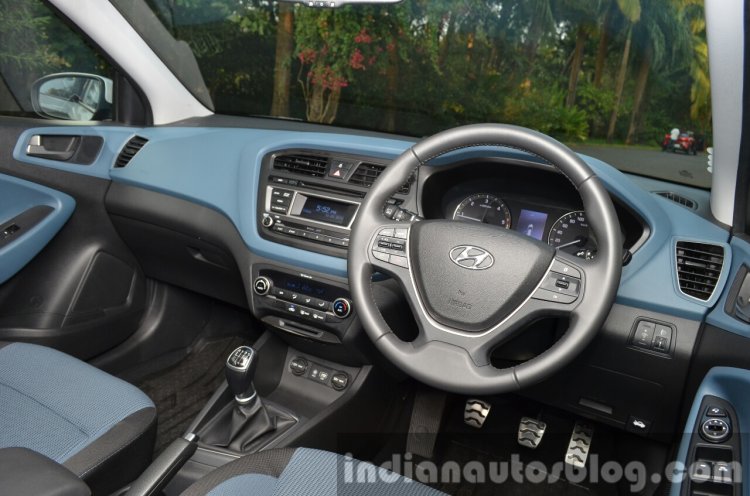
Irrespective of the body color of the car, Hyundai will offer Sport Aluminium pedals. On lighter exterior shades such as Silver, the i20 Active will sport a dual tone black and blue interior (Aqua Blue interior), with blue inserts for the door trims and blue seats.
On darker shades though like Red and Brown, the i20 Active gets an all-black dashboard with Orange inserts (Tangerine Orange) for the gear knob, AC vents, music system, and seats.
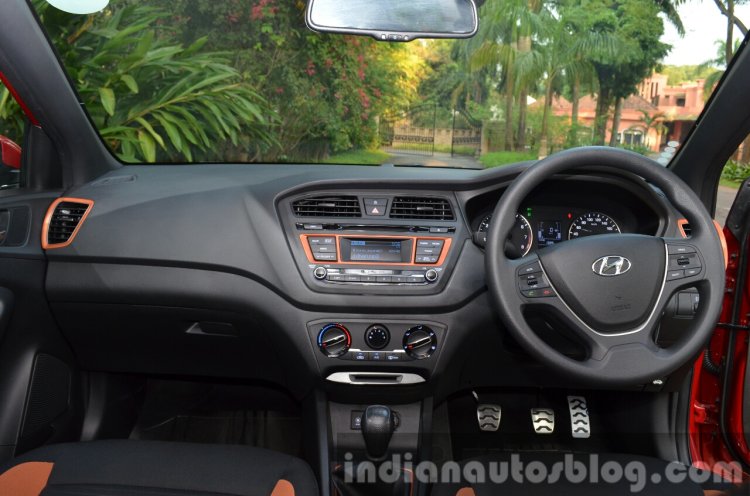
There are no further changes to the interior of the car.
Engine and Gearbox:
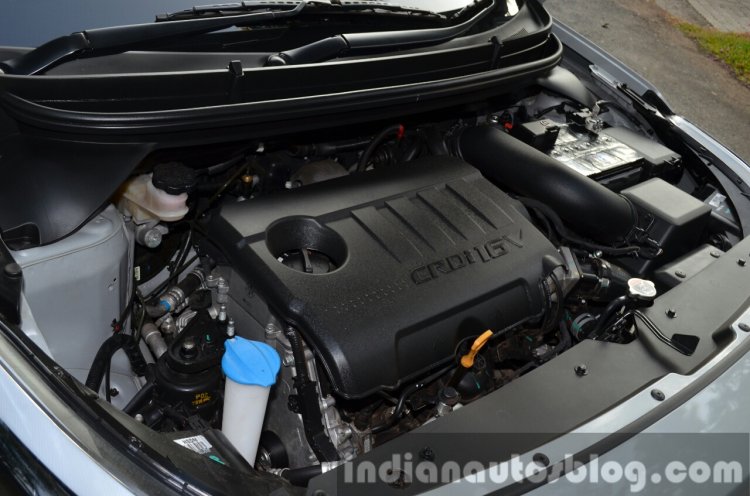
The i20 Active borrows its 1.2-liter petrol and 1.4-liter diesel engine from the Elite i20. At 83 PS (81.83 bhp) and 114.7 Nm of torque for the petrol, and 90 PS (88.74 bhp) and 220 Nm of torque for the diesel, these engines even make the same power and torque as the Elite.
However, the low- and mid-range torque response of these engines have been improved. In essence, Hyundai claims that acceleration times (0-50 km/h and 60-100 km/h) have improved by 6 percent in case of the petrol and 11 percent for the diesel. Hyundai's engineers have achieved this by changing the final gear ratio.
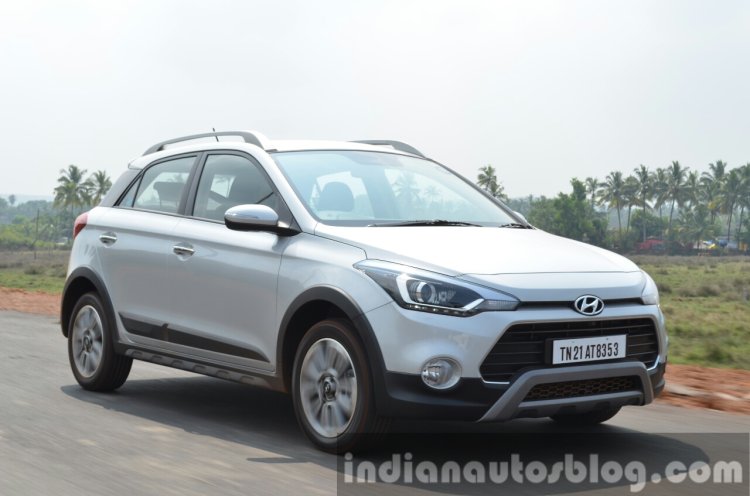
So has it really improved? In short, Yes! The diesel i20 Active feels a lot more 'Active' in getting a move on. Precisely, in the lower and mid-regions, there is noticeable improvement. This has two upshots to it. The first is that you don't need to downshift as much as in the Elite, especially in city driving conditions (40 km/h can be comfortably done in 4th gear). The second being the turbo-boost - which felt muted on the Elite - makes itself noticeable on the i20 Active.
On the petrol i20 Active, more than the acceleration improvement, we feel the engine is now more free revving. This aids in city driving, but towards the top-end of its rev-range the 1.2-liter engine still feels a bit out-of-breath.
Ride and Handling:
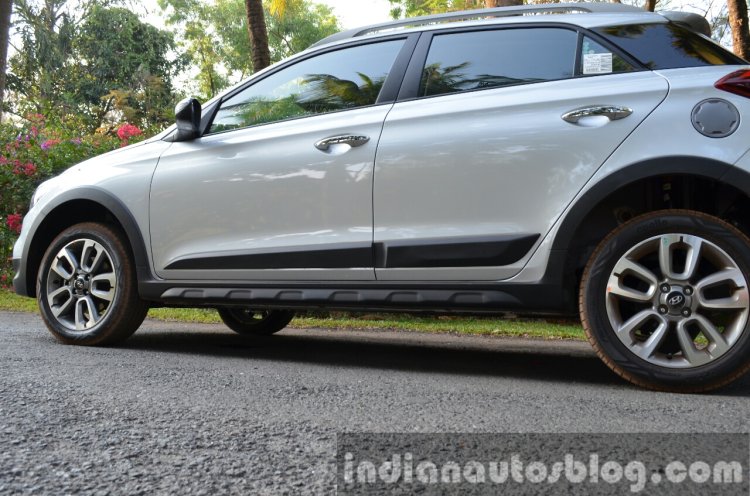
The ground clearance of the i20 Active stands at a generous 190 mm. Coming to the suspension, the coil spring height has been increased, a low-velocity control valve has been fitted on the rear, and the entire suspension setup has been re-calibrated for the increased ride height.
Take note that all these changes have been made to make the i20 Active drive in a similar manner as the Elite i20. While the body is jacked up by 20 mm, body roll on the Active feels near identical to the Elite i20. Both cars are not particularly exciting to drive, or throw around corners, but they’re Hyundai’s best attempts till date.
Brakes and Safety:
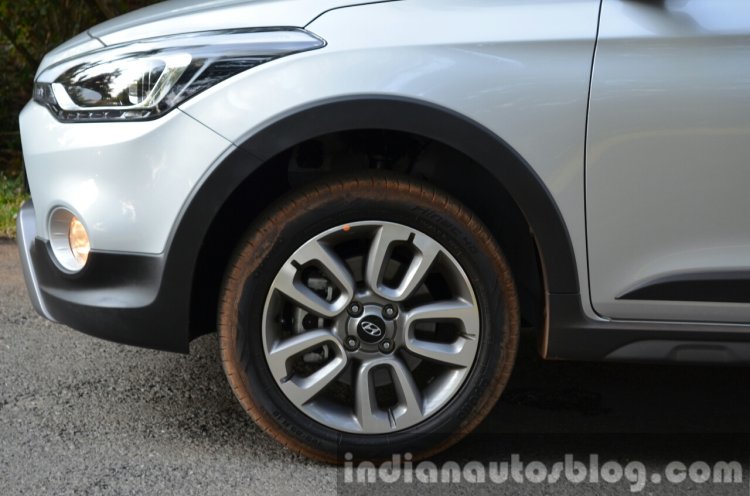
There are no changes to the brakes of the i20 Active. It continues to offer front disc brakes with ABS and EBD. Dual airbags are offered just like in the Elite.
Fuel Efficiency:
With an added weight of approximately 15 kg, fuel efficiency has taken a small dip in the i20 Active. The diesel variant is announced to return 21.19 km/l (as against the Elite i20’s 21.76-22.54 km/l), while the petrol is pegged at 17.19 km/l (Elite i20 returns 18.24-18.6 km/l).
Prices:
The i20 Active is expected to cost nearly a lakh more than the Elite i20 (the top-end Elite i20 Asta diesel comes to INR 7.99 lakhs, ex-Showroom, New Delhi).
Verdict:
Take aside the 'crossover' bodystyle of the i20 Active; at the end of the day, cars in this segment (Fiat Avventura, Toyota Etios Cross, VW Cross Polo) are conmen in their own right as they're not off-road capable vehicles. What sets the i20 Active apart from its competitors is the way its specced.
The projector headlights, cornering lights, LED DRLs are sure to grab attention for those who seek high-end features in a hatchback. The interior of the i20 Active manages to look funky, a key ingredient for the car's young target audience.
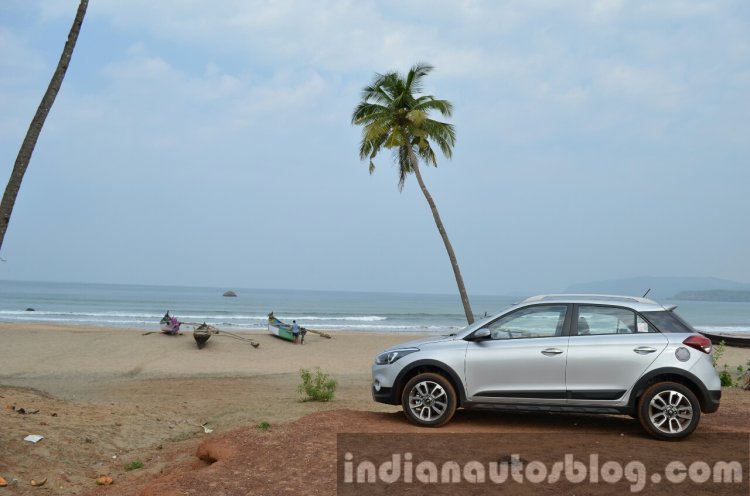
The petrol and diesel engines feel better to drive than the Elite, so that's the performance-savvy customers covered. And finally, despite the higher ground clearance, the ride and handling remains hatchback like, as does the fuel efficiency.
Pricing will decide finally if the i20 Active is a hit or a miss. But even if you’re not interested in a pseudo-crossover, you would certainly do well to give the Active a look just for the added tech it offers.
